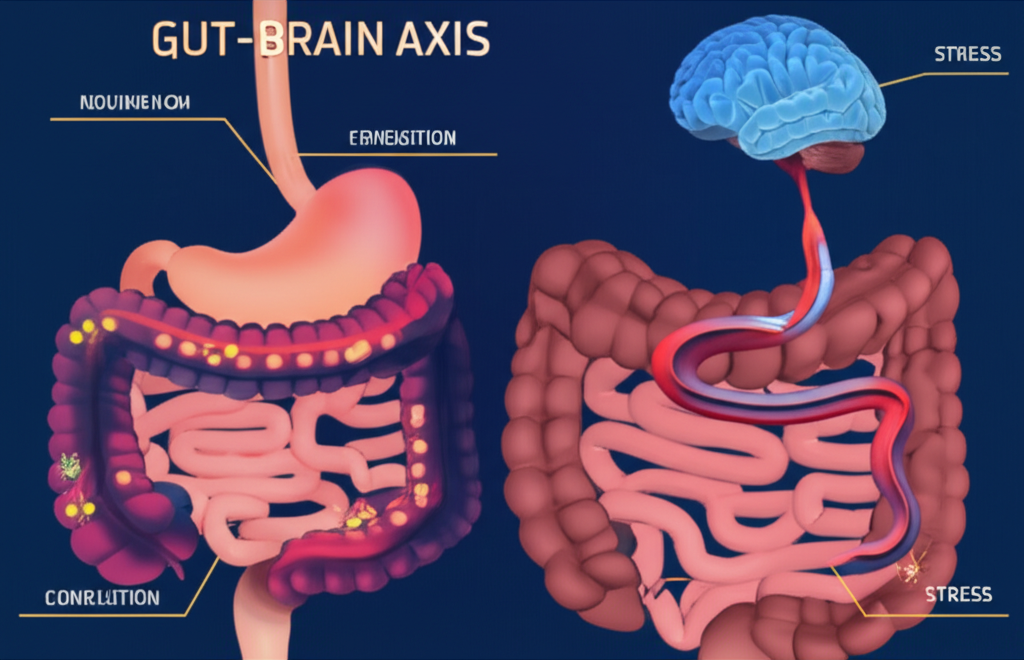Understanding the Gut-Brain Axis

You've probably heard phrases like "gut feeling" or "butterflies in your stomach." These aren't just metaphors; they're reflections of a powerful, bidirectional communication network known as the gut-brain axis. This connection is revolutionizing our understanding of mental health and cognitive function.
What is the Gut-Brain Axis?
The gut-brain axis is a complex communication system that links the emotional and cognitive centers of the brain with the functions of your gut. This conversation happens through several pathways:
- The Vagus Nerve: This is the main physical pathway, a superhighway of information running directly from the gut to the brain.
- Neurotransmitters: Did you know that over 90% of your body's serotonin (the "feel-good" chemical) is produced in the gut? The bacteria in your gut can produce and influence a wide range of these brain-altering chemicals.
- The Immune System: The gut houses a large portion of the body's immune system. Gut microbes can trigger immune responses that lead to inflammation, which is increasingly linked to conditions like depression and brain fog.
How Your Gut Affects Your Mind
A healthy, diverse gut microbiome—the community of trillions of bacteria living in your digestive tract—is essential for a healthy mind. An imbalance, known as dysbiosis, can contribute to:
- Mood Disorders: Studies have linked gut dysbiosis to increased risks of anxiety and depression.
- Stress Response: A healthy gut can help regulate the production of the stress hormone cortisol.
- Cognitive Function: An unhealthy gut can lead to a "leaky gut," allowing inflammatory molecules to enter the bloodstream and cross the blood-brain barrier, contributing to brain fog and poor concentration.
Nourishing Your Gut-Brain Axis
You can support this vital connection through diet and lifestyle. Consuming a diet rich in fiber, prebiotics (like garlic and onions), and probiotics (like yogurt and kefir) can foster a healthy microbiome. Managing stress and getting enough sleep are also crucial for maintaining a healthy gut and a sharp mind.